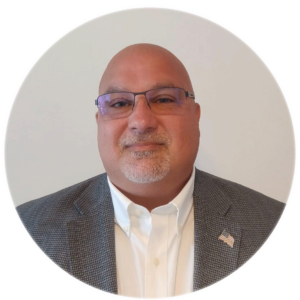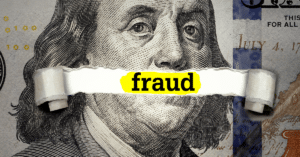Medicare is a federal health insurance program that covers eligible individuals who are over 65 years old, disabled, or have end-stage health complications. State or Federal insurance fraud is a type of healthcare fraud that occurs when healthcare providers, managed care organizations (MCOs) or nursing homes file false claims or use deceptive practices to receive larger payments from these health insurances.
These fraudulent activities not only result in substantial financial losses for the government and taxpayers but also put the health and safety of patients at risk. In this article, we will discuss the top 7 most common Medicare/ Medicaid fraud scams and how medical billers and medical office staff can detect and report these fraudulent activities.
- Medical Billing Fraud
Medical billing fraud is the most common type of insurance fraud. It occurs when healthcare providers submit false claims or overbill for services that were not provided or were unnecessary. This fraudulent activity can result in significant financial losses to Medicare and Medicaid. Medical billers and medical office staff can detect medical billing fraud by reviewing the medical records and ensuring that the services billed for were actually performed.
- Upcoding
Upcoding is a fraudulent practice that occurs when healthcare providers bill for a higher level of service than what was actually provided. For example, a provider may bill for a comprehensive exam when only a basic exam was performed. This fraudulent activity can result in higher payments from insurances. Medical billers and medical coders can spot upcoding by reviewing the medical bills and ensuring that the level of service billed for matches the services provided.
- Unbundling
Unbundling is a fraudulent practice that occurs when healthcare providers or managed care organizations bill separately for services that should be billed together as a single service. For example, a provider may bill separately for lab tests that are part of a comprehensive blood panel. This type of fraud can result in higher payments from insurances. Medical staff can detect unbundling by carefully reviewing the medical records and ensuring that the services billed for were not part of a larger service.
- Phantom Billing
Phantom billing is a fraudulent practice that occurs when healthcare providers bill for services that were never provided. For example, a provider may bill for a physical exam that they never actually performed for a patient or resident of a nursing home. This fraudulent activity results in the misappropriation of insurance funds while lining the pockets of providers and administrators. Medical billers and medical office staff can detect phantom billing by reviewing the medical records and ensuring that the services billed for were actually provided.
- Kickbacks
Kickbacks are illegal payments or anything of value given to healthcare providers in exchange for referrals for the use of certain medical products or services. For example, a provider may receive a kickback for referring a patient to a particular specialist or for prescribing a certain medication or diagnostic test. Medical office staff can detect kickbacks by observing the interactions between medical providers and 3rd party medical companies. Kickbacks are often concealed and hard to discover due to the illegality of the transaction.
- Home Health Care Fraud
Home health care fraud occurs when healthcare providers bill for home health care services that were not provided or were unnecessary. For example, a provider may bill for daily visits when only weekly visits were required or delivered. This fraudulent scam results in significant financial losses to insurance programs to the detriment of patients. Medical office staff can detect home health care fraud by reviewing the medical records and ensuring patients receive what is actually billed for.
- Medical Loss Ratio (MLR) Fraud
The MLR rule, mandated by the Patient Protection and Affordable Care Act (ACA), requires Medicare-managed care plans to spend a minimum proportion of premium revenue on patient care and quality improvement initiatives, effectively limiting the ratio that can be allocated for administrative expenses and profits. In other words, the government wants assurance that its funds are used to provide healthcare and not to pad insurance companies’ pockets. Medical staff can detect this type of fraud by ensuring the proportion of funds spent on patient care is not misrepresented and quality improvement measures are upheld.
What to Do if you Suspect Fraud
Are you experiencing any of these fraud schemes in your place of employment? If so, rest assured knowing that you are not alone. The process to report fraud is a courageous act that may even involve a potential reward, all while being safeguarded by whistleblower protections.
If you work in a medical office, nursing home, or assisted living facility and you suspect fraud, please contact us. DJO Whistleblower Law Group is comprised of a highly experienced team of whistleblower experts, lawyers, and even former whistleblowers, who strive to deliver the highest monetary reward for brave individuals who have valuable information that can expose fraud.
If a whistleblower’s lawsuit is successful, the reward can be up to 25% of the funds recovered. The False Claims Act also offers whistleblowers protection against job retaliation or wrongful termination.
Do you have valuable information that can help bring Medicare fraud to light? Speak to our experts today.

authored by Christopher J. Piacentile
Director of Investigations DJO Whistleblower Law Group


